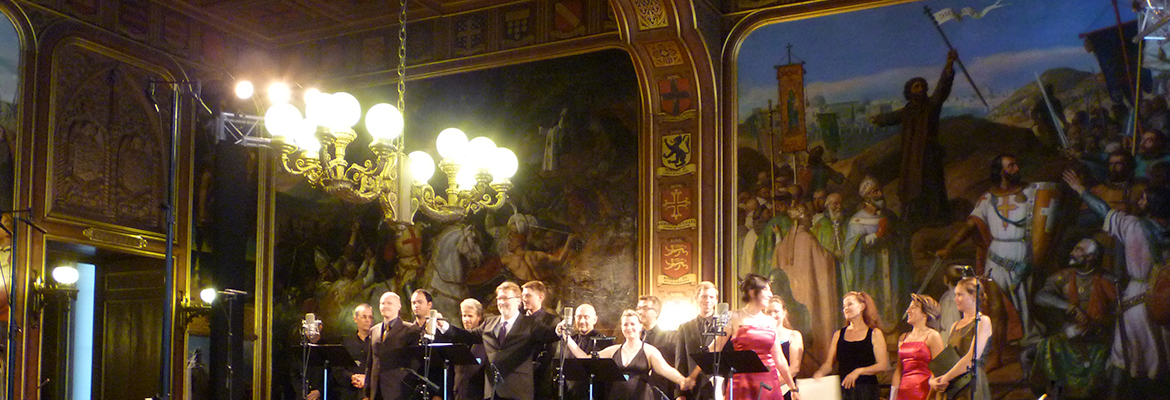Tragedy's Happy Ending

Professor Emeritus Lisa Goode Crawford Leads Performance of Royer's Tragically Overlooked Pyrrhus
by Erich Burnett
The project that has consumed Lisa Goode Crawford’s life for the past three years began with a simple desire for something to do in retirement. It could result in a groundbreaking change in the way music historians view the contributions of an 18th-century French composer.
An emerita professor of harpsichord, Crawford has long been a scholar of Joseph-Nicolas-Pancrace Royer, who is well known for his harpsichord works but whose operas never escaped the shadow of his contemporary, Jean-Philippe Rameau. “This is a composer I’ve been interested in for a very long time,” says Crawford, who divides her time between residences in Oberlin and Paris. In particular, she’s been interested in Royer’s underappreciated 1730 tragic opera Pyrrhus, which he wrote in his twenties, before King Louis XV made other demands of his time. The taleof an ill-fated romance involvingthe son of Achilles, Pyrrhus is written in the same style as Rameau’s much more celebrated work, Hippolyte et Aricie. “It’s fascinating because it was written three years before Rameau’s first opera, which absolutely revolutionized French opera,” says Crawford.
So she established a twofold mission: to develop a scholarly edition of Pyrrhus, and to produce a concert performance of the work—the first of its kind in nearly 300 years. To direct it, she teamed up with Michael Greenberg, a Canadian musicologist and performer living in Paris. The project took wing in
2010 when Crawford earned a Mellon Emeritus Fellowship, which she supplemented with a Kickstarter campaign to ensure that all of her 30 or so performers could be paid. In September 2012, those performers came together for a critically acclaimed staging of Pyrrhus at the Palace of Versailles.
“It was so exciting to hear the music come to life when you’ve just been looking at it in libraries,” says Crawford. The event was captured by the French label Alpha, which plans to issue a recording in the near future. With a grand performance behind her, Crawford has set about the nuanced task of completing the critical edition: an authoritative text that includes a wealth of supplemental research—including information on the work’s relative importance—with the goal of aiding performers in making informed decisions about the music’s interpretation. “The critical edition is a huge project with enormous amounts of detail,” says Crawford. “It’s like detective work, and it can be very exciting when you discover something new or puzzle something out by studying the sources.”
As for Detective Crawford’s next adventure? So far, she’s certain only that she’ll never undertake another project so expansive as this one.
